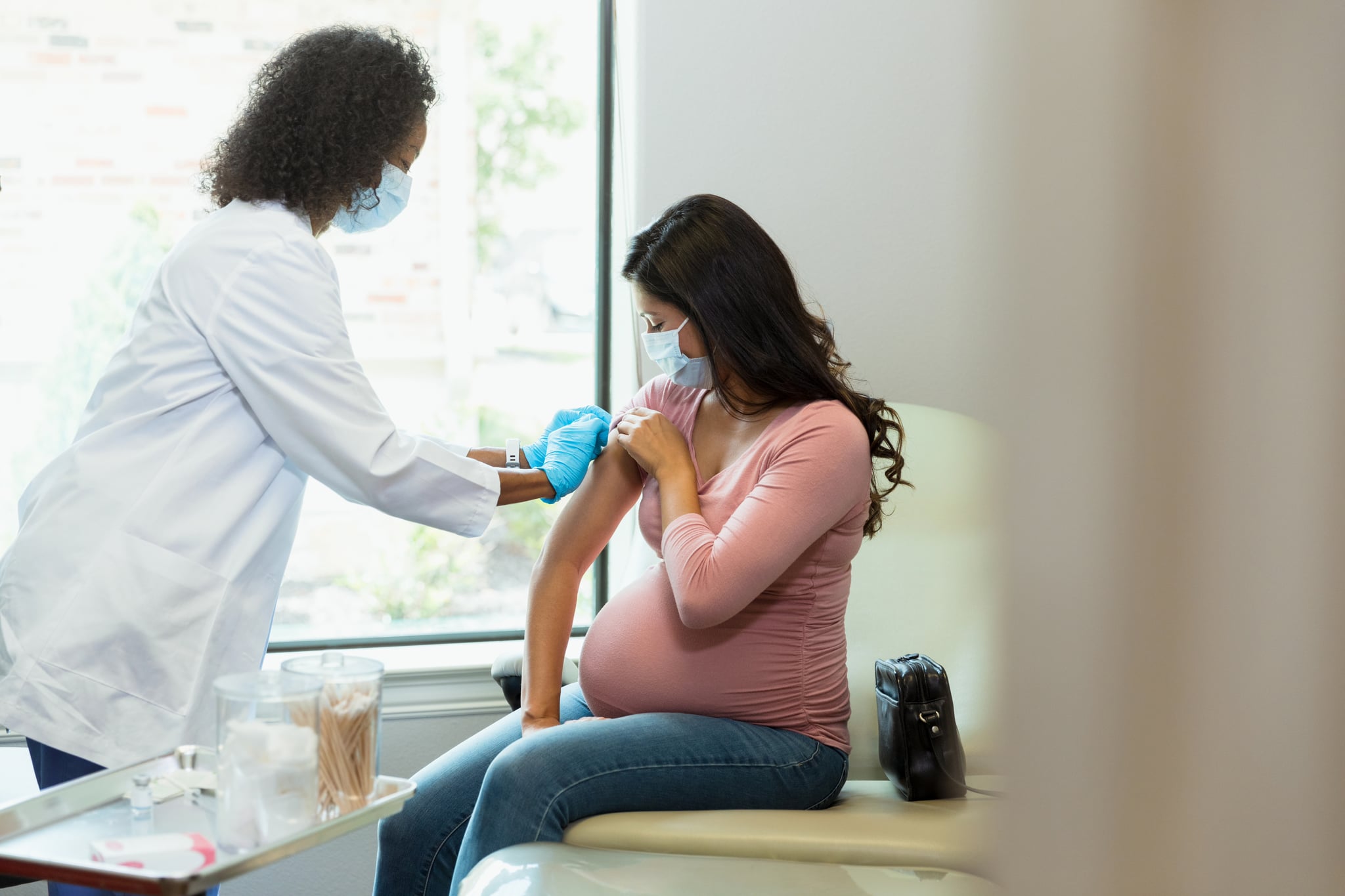
Today, the US Food and Drug Administration approved the world’s first vaccine to protect against RSV, or respiratory syncytial virus, designed to be given as a single dose to adults over the age of 60. The vaccine, Arexvy, made by GSK, could be available as soon as this fall, CNN reports.
RSV typically causes cold symptoms and infects nearly everyone by age 2. But since last fall, there has been an unprecedented spike in RSV that has contributed to a tripledemic of RSV, COVID-19, and the flu, leaving families rightfully concerned, especially those with newborns and elderly adults, both of whom are at a higher risk of being hospitalized, according to the CDC.
“For newborns, the danger is because of the immaturity of their immune system, which has not had exposure to this virus, as well as the low caliber of their airways, which can become clogged with mucus much faster,” Amesh A. Adalja, MD, senior scholar at the Johns Hopkins Center For Health Security, tells POPSUGAR. “For the elderly, it is the fact that they have many comorbid conditions that exacerbate the infection, as well as having immune senescence [or deterioration], with your immune system not responding appropriately as it once could.”
With the approval of an RSV vaccine, we can start providing protection to some of those at-risk populations. “Today’s approval of the first RSV vaccine is an important public health achievement to prevent a disease which can be life-threatening and reflects the FDA’s continued commitment to facilitating the development of safe and effective vaccines for use in the United States,” Peter Marks, MD, PhD, director of the FDA’s Center for Biologics Evaluation and Research, said in a statement.
GSK’s FDA-approved vaccine, Arexvy, is now pending a recommendation for its use from the Centers for Disease Control and Prevention’s Advisory Committee on Immunization Practices, which meets in June.
The CDC’s Advisory Committee on Immunization Practices last met Feb. 23 to discuss potential RSV vaccines, one for pregnant people and the other for the elderly, as well as the monoclonal antibody nirsevimab for infants. In the future, “it’s likely that there will be multiple vaccines available, as well as nirsevimab, for next season, and together all should have a significant impact on the burden of illness caused by RSV in high-risk populations,” Dr. Adalja says.
Keep reading for a breakdown of the other RSV vaccine candidates and what’s currently available to ward off infection.
GSK Vaccine Candidate
GSK developed a candidate called Arexvy, designed to treat AReSVi (adult respiratory ayncytial virus). It is now the first vaccine approved for individuals 60 years of age and older.
Data published in February found the vaccine was more than 94 percent effective against severe RSV infection after nearly seven months. Now that it’s been approved by the FDA, it will be brought back to CDC panel in June for recommendation before it’s made available to the public.
Pfizer’s RSV Vaccine Candidates
On Feb. 21, the FDA accepted Pfizer’s application for review of its vaccine, RSVpreF, which is being submitted for two separate approvals: for adults ages 60 and older and pregnant people to protect against RSV in newborns from birth through the first six months of life. The FDA is expected to make a decision on Pfizer’s RSV vaccine for older adults by the end of May, and we should have an update on the maternal vaccine by the end of August, per CNN.
Moderna’s Vaccine Candidate
On Jan. 17, Moderna announced that its RSV vaccine has shown to be 84 percent effective at preventing at least two or more symptoms in older adults (age 60 and older) and intends to submit a license application for regulatory approval within the next few months.
Sanofi’s Monoclonal Antibody
Sanofi and AstraZeneca have produced a single-dose long-acting antibody called nirsevimab, which helps prevent RSV infection in infants entering their first RSV season. According to a clinical trial, nirsevimab reduced infections by 70 percent in healthy preterm infants born between 29 and 35 weeks. In January, the FDA agreed to review nirsevimab for approval. If approved, it would be the second monoclonal antibody on the market for infants.
Synagis’s Monoclonal Antibody
Palivizumab, which goes under the brand name Synagis, is an FDA-approved prescription injection recommended for high-risk infants who were born severely premature at 29 weeks or earlier in order to protect them from severe RSV disease. Palivizumab is a monoclonal antibody — it’s not a vaccine, Dr. Adalja explains. Where a vaccine would train the immune system to fight off future infections, palivizumab is an immunizing agent that works by giving the body antibodies to protect it.
